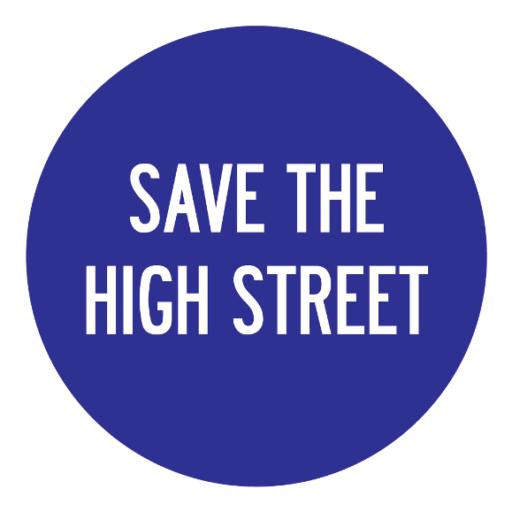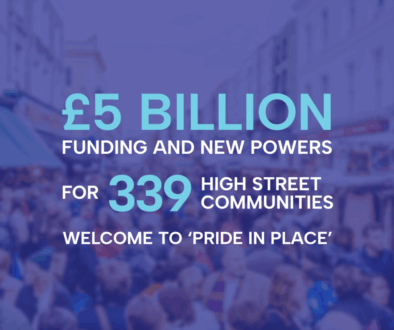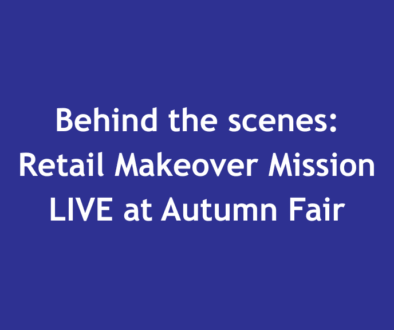Industry Insider – Sean Gillen
This week we spoke to Sean Gillen, Head of Enterprise Delivery at Richmond and Wandsworth councils. We wanted to learn more about the work that Sean does and how local councils are shaping the future of high streets across their respective boroughs.
Can you tell us about the work you do at Richmond Council?
I currently lead a team delivering a wide range of local economic development work across both Richmond and Wandsworth Councils, in a shared staffing arrangement. This ranges from hands-on work to support individual businesses, town centres and also the visitor economy, to strategic work to inform and shape future policy and delivery. It’s a genuinely invigorating mix of working with people, places and political issues! I’m particularly keen on framing our work in terms of supporting actual people, not just ‘businesses’ – helping people to build aspirations and ambition, giving them to support to get the most of life through business and enterprise. Business people are people first. If we do this well, the local economy benefits of course.
Why did you pursue a career in economic development within local government?
It was the variety of work, engagement with real issues and connection with things that interested me at university that swung it. In 2009 I was working at a county council as a ‘generalist’, doing policy and strategy work and service development. I felt the need to develop more of a focus and a management role in economic development came up at Richmond. I was able to tick all the boxes in the job profile apart from ‘experience in economic development’. Fortunately nobody noticed.
What role do you think councils play in ensuring a successful high street?
We often hear from businesses asking us to do something about rent and rates. Unfortunately councils tend not to have leverage on these – landlords and the market control the rents, and business rates are set nationally and only collected locally. Hence we try to focus on supporting the wider business environment on one hand, and individual businesses development on the other.
There is more to our role though. It’s critical to realise that our town centres and high streets are complex socio-economic machines that not only support the economy, but provide essential goods and services, leisure, transport connections and social engagement. My professional view is that they are often overlooked as places that are physically and cognitively the centre of our communities, providing that sense of place that people can share – a kind of neutral ground where what we have in common trumps what is different. Everyone needs to shop, meet other people or relax at a fair or event. When viewed as such, the breadth of council services that impact on town centres comes in to sharp focus – the highly visible but thankless tasks of managing parking, maintaining roads or keeping streets clean are really important to town centres, but so is getting planning policy right so that town centres can adapt to changing consumer and technological trends. So, councils’ specialist services, alongside their power to convene and facilitate local activity in various ways are critical to high streets’ success.
A major development in recent years has of course been the growth of Business Improvement Districts and this is something we’ve been actively pursuing. Our role in this is to help bring them in to being when businesses support them of course, but increasingly it will be to help ensure that the BIDs that emerge are more creative and inspiring for their levy-paying retailers.
What do you think are the biggest opportunities for independent high street businesses this year?
The media attention to high street issues is bringing forward business-led solutions such as SaveTheHighStreet.org’s approach, as well as online platforms for even small businesses to sell online efficiently – these opportunities are there for the taking. There’s also an increasing media focus on the disparity between taxation for retailers that rely on physical premises and those that don’t, which seems to be gaining some traction at a high level. Adding your voice to the debate can only help. (In the meantime, businesses can very easily check and if necessary challenge their premises ‘Rateable Value’ on the VOA website – it could impact on Business Rates bills).
When has a local business surprised you in a positive way and how did they do it?
A locally-based ice-cream – sorry, gelato – company really stepped up. Instead of filling the streets with a slightly creepy, tinny tune he developed a social media approach so that people know when and where he will be, and what the new flavours are. He backs this up with a truly fantastic product – best I’ve had. People talk about this in the neighbourhood and his presence creates a bit of a buzz. He’s nailed it on product quality, price point and promotion. It does mean that I’m eating far too much gelato though, which isn’t ideal.
Why were you keen to be part of SaveTheHighStreet.org?
For a long time I’d been concerned about how best to support under-pressure retailers so I was delighted to see the emergence of a campaign addressing one of the key underlying challenges for independent retail and high streets. Retailers understandably express their concern to us about costs that we or they cannot exert much influence over, but a couple of factors that retailers often have the potential to influence are in fact their internal costs and revenue. Addressing the digital challenge and using all the tools available to boost productivity and turnover are key to this –working with the internet and technology, not against it. There is a real opportunity for some retailers to become very effective online retailers with a physical shop front, rather than a physical shop with an online add-on – but it does take commitment.





